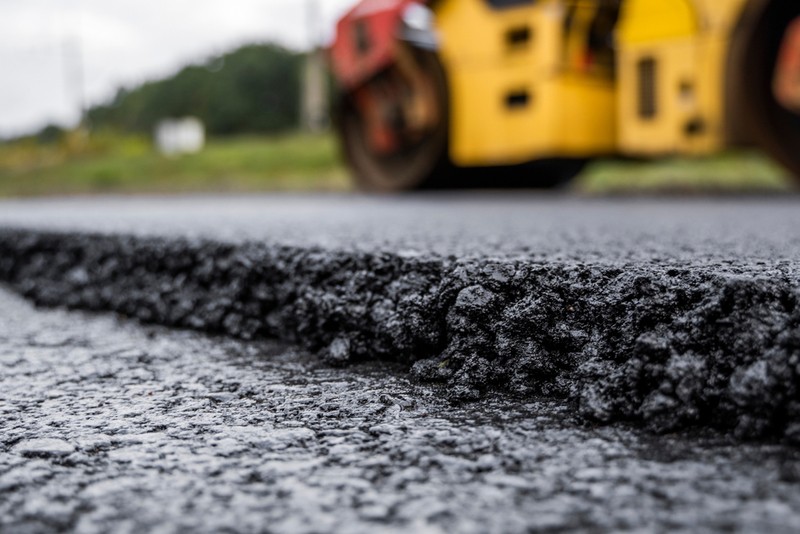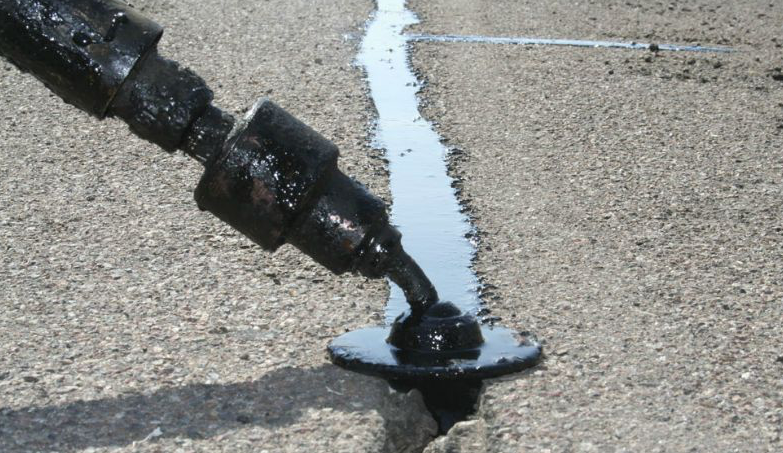Swift Solutions for Asphalt Spot Repair: Optimum Securing Strategies
Swift Solutions for Asphalt Spot Repair: Optimum Securing Strategies
Blog Article
Cold Mix Asphalt Vs. Hot Mix Asphalt: Which Is Right for You?

Make-up Differences
Cold mix asphalt is created by emulsifying the asphalt binder with water and an emulsifying representative prior to mixing it with aggregate. The hot mix asphalt manufacturing procedure includes heating the aggregate and asphalt binder individually prior to integrating them at the asphalt plant.
Additionally, cool mix asphalt tends to be less thick and extra adaptable than warm mix asphalt. This versatility makes it much better suited for locations with higher degrees of activity, such as driveways or roadways with hefty traffic. In contrast, warm mix asphalt is recognized for its high resilience and resistance to rutting and splitting, making it a preferred option for highways and high-traffic roads where longevity is essential.
Installment Refine Variations
The process of setting up chilly mix and hot mix asphalt displays notable variances in their demands and procedures. Cold mix asphalt, being a much more versatile material, can be applied straight from the bag or container onto the pit or damaged area. It requires very little preparation job, such as cleaning up the location and compacting the cold blend with hand tools. This makes it a hassle-free alternative for short-term and quick solutions. On the other hand, hot mix asphalt requires a more elaborate installation process. It includes heating the mixture to heats prior to laying it down on an effectively ready base. The preparation consists of condensing the base, using a tack coat, and using hefty equipment like pavers and compactors for a smooth and long lasting surface. Due to the home heating needs, hot mix asphalt installations are usually executed by professionals with customized devices, ensuring an extra permanent and structurally audio result.
Longevity and Long Life Aspects
When taking into consideration asphalt options, sturdiness and long life are crucial factors to evaluate for lasting pavement performance. Hot mix asphalt (HMA) is known for its extraordinary sturdiness and durability. The high temperatures during the blending and laying process enable far better compaction, resulting in a denser and more powerful pavement framework. This brings about HMA being extra resistant to rush hour lots, rough weather condition problems, and the impacts of maturing contrasted to cold mix asphalt (CMA)
In terms of long life, HMA normally surpasses CMA as a result of its remarkable strength and resistance homes. HMA sidewalks have a longer life span, requiring much less frequent fixings and maintenance, which can convert to cost savings in the future. Additionally, HMA pavements are extra quickly adjustable to fulfill particular task requirements, additionally enhancing their longevity.
Cost Factors To Consider
Taking into consideration the economic effects is a crucial aspect when evaluating the choice between hot mix asphalt (HMA) and cold mix asphalt (CMA) for pavement tasks. While the first price of hot mix asphalt is usually higher than that of cold mix asphalt, HMA frequently offers a more cost-effective solution in the lengthy run due to its premium longevity and long life.
In enhancement to material prices, it's necessary to consider the costs associated with setup and upkeep when contrasting HMA and CMA. Eventually, the choice between HMA and CMA ought to take right into account not simply the initial price but also the lasting financial ramifications to establish the most cost-effective choice for the particular sidewalk job.
Environmental Influence Comparison
Contrast of the environmental effects between hot mix asphalt (HMA) and cold mix asphalt (CMA) exposes distinctive distinctions in sustainability techniques. HMA production needs high temperatures, leading to boosted power intake and greenhouse gas emissions.
Moreover, the use of CMA commonly entails recycling existing asphalt sidewalk, advertising resource preservation and minimizing the quantity of waste sent out to garbage dumps. This recycling facet additionally boosts the sustainability of CMA contrasted to HMA. On the whole, when thinking about the environmental influence, CMA becomes a much more ecologically sustainable choice due to its lower power needs, minimized discharges, and the potential for reusing existing products. By choosing for CMA over HMA, road building and construction projects can contribute positively to environmental preservation efforts.
Verdict
To conclude, the choice between cool mix asphalt (CMA) and hot mix asphalt (HMA) depends upon different elements such as composition, installment process, toughness, durability, cost, and environmental impact. asphalt patch repair. While CMA offers a quick and economical option for small fixings, HMA makes sure exceptional sturdiness and longevity for heavy web traffic locations. Think about these factors meticulously to establish which sort of asphalt is the ideal selection for your paving needs

Considering the monetary effects is a vital facet when evaluating the selection between warm mix asphalt (HMA) and cool mix asphalt (CMA) for pavement projects. While the preliminary expense of warm mix asphalt is generally higher than that of cold mix asphalt, HMA typically gives a much more cost-efficient solution in the long run due to its exceptional longevity and longevity. asphalt patch repair.Comparison of the environmental effects between hot mix asphalt (HMA) and chilly mix asphalt (CMA) exposes unique distinctions in sustainability techniques.In final thought, the choice in between cool mix asphalt (CMA) and warm mix asphalt (HMA) depends on various aspects such as make-up, installation process, sturdiness, longevity, cost, and environmental impact
Report this page